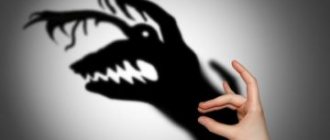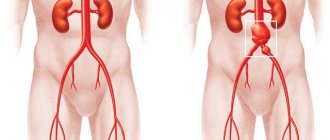The female body is sensitive to changes, and symptoms such as nausea or dizziness can be either a long-awaited symptom of pregnancy or a signal of a serious illness.
Dizziness in women can be due to many reasons, both physiological and emotional. The female body, under the constant influence of hormones, is dependent on the cycle, age-related changes, mood and stress.
The cause of dizziness, or vertigo as it is commonly called, may be a disease that you do not yet know about, so you should not wait for a recurrence, and be sure to seek help from a specialist.
There are main reasons for this condition in women, and it is worth paying attention to them before the situation gets out of control.
Pregnancy
Most often, women of childbearing age attribute nausea and dizziness to pregnancy. These are well-known signs that bother most people in the first trimester, and only some foods or smells cause the body to react in this way.
If you are pregnant, tell your doctor about your condition and clearly describe the moments when you feel dizzy.
Avoid stuffy rooms, large crowds of people, and do not drive until this condition stops. If it catches you driving, be sure to stop and ask for help, don’t be shy.
Most likely, this problem will go away in the second trimester. It is quite rare for women to experience this discomfort throughout their pregnancy.
Climax
Nausea and dizziness can also be signs of menopause, along with the well-known:
- tides;
- sudden changes in mood;
- increased sweating;
- sensations of cold in a warm room.
If these companions of menopause appear along with a feeling of dizziness, loss of strength, and nausea, most likely the cause is menopause.
Nowadays, there are a huge number of medications that the doctor prescribes after reviewing your medical history, discussing with you all the points that bother you and cause discomfort. They relieve discomfort and a general painful condition, allow you to lead a full life, and not deny yourself your habits.
Diets
Lack of nutrition is a problem that leads not only to loss of coordination, but, first of all, is the cause of serious irreversible processes.
As sad as it may be, most women still make their own decisions regarding this or that diet. More often than not, diet is quite an extreme measure.
Women of the asthenic type, as well as those who are passionate about self-improvement with particular fanaticism, quite often feel dizzy, especially in the morning, on an empty stomach. Most often, they do not get slim shapes, but hypoglycemia - a lack of sugar in the blood. The most dangerous thing is that not only the vestibular apparatus and complexion suffer, but also the brain, which does not receive the required amount of glucose.
Problems such as bulimia have become common - an eating disorder, “thanks to” which the body refuses to accept food, which means it does not receive the microelements it needs. During the period of refusal of food, not only dizziness and nausea may occur, but also hungry fainting, which can be found in completely unexpected places.
Stop eating your diet if you feel nauseous or dizzy and discuss this problem with a nutritionist. Today, millions of women and men have lost weight thanks to nutrition and activity rules developed specifically for them.
Psychological problems
Stress, so common nowadays, the race for a career, material well-being, the desire to implement plans in a critically short time - all this cannot have any effect on the emotional state. Nausea and dizziness may occur when you feel unprotected, unfairly punished, or due to physical fatigue.
A nervous system disorder caused by prolonged depression, panic attacks, and fears can bring a lot of unpleasant sensations. Most likely, you need to pay attention to your rest time, learn to plan your life taking into account the fact that you are not a machine or a programmable organism.
Professional burnout is one of the main causes of such conditions, and you can only get out of the vicious circle by realizing the existence of this problem.
With every fear, with every frightening thought, you can turn to a specialist, and putting aside all matters for a while, restore your health in the shortest possible time. Otherwise, the problem may become so serious that getting out of it will undo all your achievements.
Vestibular apparatus
Remember how, as a child, you got carsick on carousels, or in the back seat of a car?
If this problem has returned now, do not think that it is forever. A weak vestibular apparatus is a feature of some people, both women and men. Today there are many drugs that solve this problem, and if you travel often, just remember to take them with you.
Physical activity, correctly selected by a trainer, will help to solve this problem to some extent. Strengthening the vestibular system is a matter of time and your persistence.
Contact your doctor, describe the problem, since the reasons may be different, and, accordingly, the treatment.
Physical inactivity
A modern sedentary lifestyle, minimal activity on the street thanks to cars, passive rest are the causes of a new disorder of our time. Lack of cardio exercise relaxes the heart muscle, blood vessels, and lowers the body's immune defense.
If you suddenly change your lifestyle after the usual measured one, the blood vessels are unlikely to cope with such a load, and dizziness will not be long in coming.
Stable cardio exercises are necessary for the prevention of diseases of the cardiovascular system. When deciding to take up any sport, if you have not practiced it before, you should consult with a therapist and coach.
You may be interested in an article about treating anorexia at home.
And this article is about ways to treat insomnia.
After reading this article, you will learn about the causes and treatment of high blood pressure.
Diseases that cause dizziness and nausea
If you suspect any disease from this list, you should immediately consult a doctor, since you will not be able to diagnose the disease yourself.
Self-medication, as a rule, leads to disastrous consequences.
Visit your doctor if you have:
- Anemia. Women who lose a lot of blood during menstruation should definitely check their blood for hemoglobin. Fatigue and weakness, slight dizziness and nausea in the morning indicate anemia.
- Osteochondrosis. Clamps in the cervical spine cause dizziness and headaches in the back of the head. Coldness in the spine area also indicates osteochondrosis.
- Vegetovascular dystonia. If, after a static position, you suddenly stand up, turn your head, or bend over, you feel dizzy, you feel like you are losing consciousness, and nausea comes to your throat, it is necessary to diagnose this disease. In the early stages, treatment will be quite simple.
- Changes in blood pressure. With sudden surges in pressure, and especially with low blood pressure, dizziness, nausea, coldness of the extremities, and a state close to fainting are observed. It is necessary to immediately call a doctor and carry out treatment under supervision.
- Diabetes. Crises due to a sharp drop in blood glucose levels lead to dizziness. It is worth paying attention to the fact that nausea and dizziness appear in a hungry state.
- Brain tumors. The localization of the processes may vary, and if you are not sure about the nature of dizziness that appears from time to time for no apparent reason, consult a doctor immediately.
How does the syndrome occur?
Dizziness is an unpleasant feeling of lack of stability of surrounding objects; they are perceived as rotating or moving, while a person loses balance, cannot move confidently, or distinguish direction and goals.
It manifests itself in patients when turning the body, bending down (“dizzy”), in the form of attacks of dizziness with nausea and vomiting. A complex system of the vestibular apparatus is responsible for the correct perception and assessment of movements. Its center is located in the cerebellum. But the assessment depends on the state of information coming through special nerve fibers from the sense organs.
Therefore, the “culprits” of dizziness may be:
- central link - in case of damage to the cerebellum caused by diseases of the brain;
- peripheral - if vision is impaired, the vestibular nerve and inner ear are involved in the pathology.
In addition, dizziness is distinguished:
- physiological - there is no pathology of the vestibular apparatus, they arise due to hunger (a drop in blood glucose levels), a stressful situation (a consequence of the release of adrenaline and cerebral vasospasm), motion sickness in transport, overwork;
- systemic (pathological) - always caused by a disease with damage and disruption of the functioning of the cerebellum, the parts that make up the vestibular apparatus, vision, and muscles.
Nausea also has central and peripheral causes. The main vomiting center is located in the medulla oblongata. Receiving signals through internal pathways, at a subthreshold level of irritation it causes not vomiting, but a feeling of its approach.
The brain receives influence on the central zone through the ascending nerves, from the blood, depending on the composition of hormonal levels, glucose and other substances. Toxins and unremoved waste irritate the center and contribute to nausea and vomiting.
Local causes are changes in the acidity of gastric juice, the accumulation of a large volume of undigested food, pain from ulcers and cancer. In this case, the body tries to free itself from overirritation and cleanse the stomach with the help of vomiting.
The causes of nausea and dizziness are associated with the common blood supply to the cerebellum and medulla oblongata. Disturbance in the supply of neurons with oxygen and nutrients during ischemia leads them to a state of hypoxia, the cells are not able to synthesize energy, and the content of electrolytes is disrupted.
As a result, various types of cerebral circulatory insufficiency are clinically manifested with attacks of dizziness, headache, nausea and vomiting, drowsiness, and transient disturbance of consciousness.
Symptoms of dizziness and nausea are a serious component of many neurological diseases, which are the consequences of circulatory disorders in the brain during hypertensive crises, a drop in blood pressure during states of shock.
The desire to achieve weight loss through starvation diets often ends in anemia and the need for treatment
Treatment
After receiving the results of all tests and diagnostic procedures, the attending physician determines the disease that is causing the patient to feel dizzy and nauseous. And based on this, he prescribes treatment, which can be conservative or surgical.
First, therapy will be aimed at getting rid of symptoms: nausea and dizziness. For this purpose, antihistamines, sedatives, diuretics and antiemetics can be prescribed. Next, the treatment of the disease itself will begin:
- for high blood pressure, diuretics and vasodilators are prescribed;
- for osteochondrosis, medications are prescribed to relieve muscle spasms, nootropic drugs and B vitamins. They can also additionally refer you to courses of physiotherapy and massage;
- in case of disturbances in brain activity and blood supply, with the help of neuroprotectors and B vitamins, they provide the brain with nutrition and restore blood circulation;
- For neuroinfections (meningitis, encephalitis), complex treatment is necessary. Therefore, anti-inflammatory, hormonal and antiviral agents, as well as immunoglobulins, are prescribed;
- For otitis media and labyrinthitis, treatment is carried out with anti-inflammatory drugs and antibiotics. In a complex and advanced situation, surgical treatment may be necessary;
- in case of poisoning, including alcohol, gastric lavage is performed and adsorbents are prescribed.
The surgical method is used for more complex diseases, or in advanced situations that cannot be treated with medication.
What physiological conditions cause nausea and dizziness?
Physiological causes of dizziness and nausea include hormonal changes that occur in women during pregnancy and menopause. In girls, signs appear with heavy menstruation. The body's sensitivity to moderate blood loss and lack of nutrition play a role.
Women complain of dizziness, weakness, and staggering when walking. If pain appears in the lower abdomen, you should urgently contact a antenatal clinic and find out the cause.
Vegetative-vascular dystonia is considered by some to be a physiological process, while others consider it to be a pathology. There is no doubt that all symptoms appear in adolescents and children. They are associated with hormonal fluctuations during periods of active growth. Schoolchildren often experience dizziness and fatigue. This also applies to young, impressionable women. No organ disorders were detected.
Dizziness and vomiting are a common reaction of the human nervous system to vibration and body vibrations in transport, in flight, at sea. People call it "motion sickness" or "sea sickness." Signs are accompanied by excessive salivation, headache in the temples, and sweating. Associated with low adaptive function of the autonomic nervous system.
Stressful situations - a normal reaction includes the release of catecholamines, which temporarily spasm the blood vessels of the brain. The condition returns to normal after rest and calming procedures. Hypoxia does not reach threshold values and does not cause circulatory disorders in neurons. With frequent repetition, the nature of the changes is disrupted. Vasospasm causes pathology.
Folk remedies
Before starting treatment with traditional medicine methods, be sure to consult your doctor!
Traditional medicine for the treatment of dizziness recommends the following effective remedies::
Ginger tea is very useful for this ailment.- Ginkgo biloba tincture will definitely help.
- You can prepare fresh juices from a mixture of beets and carrots and take them in the morning.
- Tea made from parsley seeds will help to cope with this problem. You need to pour a teaspoon of seeds into one glass of boiling water, leave for 5-6 hours, drink half a cup of coffee 4 times a day.
- Problems associated with the functioning of the vestibular apparatus can be perfectly solved by seaweed powder.
You can see other proven recipes for folk remedies for dizziness here.
When does severe dizziness and nausea occur in neurological diseases?
Neurological symptoms are very specific. Neurologists check reflexes, the sensitivity of different areas of the body, the nature of movements, stability and balance. Combinations of signs make it possible to judge the damage to certain areas of the brain and peripheral nerves.
Why does my stomach hurt and my head feel dizzy?
Cervical osteochondrosis causes an adult a lot of pain. The disease is caused by degenerative-dystrophic changes in the intervertebral cartilage. Most often, patients complain of pain in the neck on one side, which intensifies when trying to move.
Severe dizziness and nausea occur when raising the head or turning suddenly. Decreased balance, unsteadiness in gait, and numbness in the fingers are detected. Vestibular neuritis - severe dizziness occurs in the patient when getting out of bed, getting out of a chair, or turning the head. Symptoms appear suddenly and disappear after 2–4 days. Recurrence of attacks is possible.
In Meniere's disease, the increased volume of lymph increases the pressure inside the middle ear labyrinth and causes attacks of deafness, dizziness and vestibular disorders
Meniere's disease is characterized by severe tinnitus, hearing loss, dizziness and nausea with bouts of vomiting. Cerebrovascular accidents occur in the form of vascular crises, hemorrhagic and ischemic strokes. Symptoms depend on the type of disorder and the extent of the process. There are acute and chronic forms.
Neurological symptoms include:
- prolonged vomiting, dizziness and nausea;
- severe weakness in the limbs;
- loss of sensation;
- paralysis;
- feeling of darkening, double vision, flashing of luminous dots;
- loss of visual fields;
- speech difficulties;
- disturbed balance;
- sensation of objects rotating;
- transient disorder of consciousness;
- sleep disorder;
- headaches, feeling of “pulsation” in the head.
Basilar migraine - the aura of the disease is manifested by harbingers, they indicate that signs of the disease will appear after half an hour to an hour. Nausea and dizziness are often the first to indicate the onset of an attack, followed by sharp headaches on one side of the head. Migraine is accompanied by vomiting, darkening of the eyes and flashing spots, and tinnitus.
Brain tumors often cause severe headaches, deterioration of the patient’s condition in a certain position, loss of vision, deafness, vestibular disorders.
How to quickly get rid of an attack of malaise?
If you experience dizziness, do not panic, calm down, be sure to sit down . Under no circumstances should you close your eyes, move or turn your head. Next, concentrate your gaze on some object. Open the windows and ventilate the room thoroughly.
If you don't feel better, remove any restrictive clothing and apply a cold compress to your forehead. For a compress, dilute the vinegar with cold water. If there is no improvement, then you can take Seduxen (5 mg) or Andakasin (0.2 g).
We talked in detail about the drug treatment of dizziness, as well as what to do if an attack happened on the street, here, and here we talked about how to get rid of this disease at home.
When are nausea and vomiting not associated with diseases of the nervous system?
Doctors of any profile have to deal with symptoms such as nausea and dizziness. They are caused by general pathology. Among diseases of the cardiovascular system, it is necessary to note neurocirculatory dystonia in adolescents, true and symptomatic hypertension. High blood pressure is manifested by hypertensive crises.
The patient has:
- headaches in the back of the head, temples, vertex of a pulsating nature;
- dizziness and nausea;
- feeling of chills and muscle tremors;
- flickering of flies before the eyes;
- possible bleeding from the nose;
- feeling of lack of air;
- stitching and pressing pain in the region of the heart.
Crises also occur at significantly lower pressures
Injuries to the head and spine cause vestibular disorders of varying degrees, from short-term crises to persistent dizziness. Depending on the severity of the injury, life-sustaining areas of the brain may be damaged.
Endocrine diseases are often accompanied by similar symptoms in a state of hypoglycemia (a drop in glucose in the blood of a patient with diabetes mellitus) and impaired thyroid function.
In the practice of an otolaryngologist, labyrinthitis often occurs as an inflammation of the middle ear. In addition to pain, hearing loss, and purulent discharge from the ear canal, it is manifested by dizziness and nausea. An ophthalmologist, when examining the organs of vision, discovers the cause of dizziness in weakness of the eye muscles. This causes flashing before the eyes.
Lack of fruits and meat products in food contributes to the development of anemia (anemia). The disease also develops with pathology of the stomach and intestines, which does not allow the absorption of substances supplied with food. The brain does not have enough calories to replenish energy reserves. Therefore, patients experience nausea and dizziness.
Food poisoning and exposure to toxic toxic substances that enter the blood through the digestive organs directly suppress brain function. A similar effect is caused by taking alcohol and drugs. Signs of intoxication include:
- abdominal pain (in the epigastric region, along the intestines);
- vomiting with bitterness in the mouth, indicating duodenogastric reflux (return of food mass from the duodenum and stomach);
- diarrhea;
- temperature increase;
- weakness.
The cause of poisoning may be storing food in the refrigerator along with meat, or using the same knives and boards
Exercises
Some dizziness, especially positional dizziness, can be cured with special exercises. But it will need to be performed daily in order to ultimately get a good therapeutic result. The first complex begins in a sitting position. It is better to sit on the floor, stretch your legs straight and focus your gaze in front of you. Then quickly lie on your back and also quickly roll over onto your left side. At the same time, you need to try to look only in front of you. Lying on your left side, you need to roll over onto your right side, and then onto your back and again take a lying position.
Special exercises can combat dizziness
We recommend reading:
How to treat pharyngitis at home
It is extremely important to maintain a fast pace while performing such gymnastics. Due to this, a therapeutic effect for dizziness is achieved. Experts recommend that you first do this set of exercises slowly and leisurely in order to remember everything and then repeat it at an accelerated pace and in the correct order.
Another set of exercises can give good results. You need to sit on a chair and quickly lean forward. Then quickly straighten up and turn your head to the left. After this, repeat similar actions, but the head turns to the right. Then bend over again, looking at the floor, and quickly straighten up, trying to keep your head straight. Nod your head three times so that your chin reaches the sternum area.
All exercises must be repeated up to three times a day for four months. If dizziness is systematic, then before starting such exercises, you need to consult a doctor.
You also need to prepare for the fact that at the very beginning of such activities, dizziness may intensify. But if you do gymnastics on a regular basis, then soon the condition will normalize, and such phenomena will completely disappear. So this method of treatment also produces results.
What we must not forget
Symptoms can be caused by the child overheating in the heat or sunstroke on the beach. In elderly people, under the influence of vascular atherosclerosis, chronic cerebral insufficiency, and previous diseases, vestibular disorders are formed:
- staggering when walking;
- attacks of nausea;
- short-term loss of consciousness and orientation;
- decreased memory and attention;
- hearing and vision impairment;
- change of character.
These symptoms must be taken into account when organizing care for the elderly.
When identifying the causes of dizziness and nausea, an important role is played by the negative effects of medications. Therefore, the doctor needs to be informed about all medications and folk remedies that the patient is taking. Each person has their own sensitivity; it is impossible to predict the reaction to treatment in advance.
If dizziness and nausea occur, you should stop taking it and seek medical advice. The most common causes of vomiting are antibacterial, anticonvulsant, antihypertensive, sedatives, sulfonamides, and cardiac drugs.
What will happen if you don't take action?
Simple dizziness often hides the most dangerous diseases . It may be a symptom:
- heart disease;
- pathologies of the inner ear;
- cerebral ischemia;
- oncological diseases.
Therefore, it is important to take this problem seriously, go to the doctor and start treatment immediately.
If dizziness is not treated, you can get vascular dementia, stroke, heart attack, become disabled, and in some cases, if dizziness was a symptom of a neoplasm, simply lose your life.
Diagnostics
To evaluate a patient with dizziness, vomiting, and nausea, the doctor first asks questions and looks for other signs of the suspected illness. Be sure to check:
- blood test indicators (detection of anemia, lipid metabolism disorders in atherosclerosis, signs of an inflammatory process);
- sugar curve to exclude diabetes;
- electrocardiography helps to exclude diseases of the heart muscle;
- electroencephalography - indicates the functions of individual parts of the brain;
- Ultrasound of cerebral vessels allows us to identify the cause of circulatory disorders;
- X-ray of the cervical spine reveals osteochondrosis;
- Magnetic resonance imaging will show brain structures more accurately.
Patients need to be examined by a neurologist, ophthalmologist, or otolaryngologist
Special gymnastics
To get rid of dizziness, vestibular gymnastics is very effective, which:
- starts blood circulation;
- promotes the transfer of nutrients and oxygen to the brain;
- relieves muscle tension.
Before starting gymnastics, you should definitely seek advice from a competent specialist . The average course of such treatment is 2 months, but we must remember that the treatment must be carried out in combination with drug treatment and physiotherapy, and you must consult with your doctor.
Diagnostic measures and specific treatment
After the doctor finds out the clinical picture of the symptom, he will prescribe a series of diagnostic measures, based on the results of which he will make a diagnosis.
Let's list some of them:
- MRI of the brain;
- Doppler ultrasound of blood vessels;
- MRI of the spine;
- X-ray of the spine;
- Electroencephalography;
- Electromyography.
You can get rid of dizziness based on the treatment prescribed by your doctor, which is based on the following principles:
- Drug therapy;
- Acupuncture;
- Massage of the collar area;
- exercise therapy;
- Traditional medicine recipes.
None of the given areas of treatment can be prescribed independently! The choice of a method or a combination of them is made only by a physician.
How to stop dizziness at home
Essential oils.
1). Such oils are equipped with multifunctional actions and provide proper well-being when directly inhaled, massaged or added to the bath.
2). You can take them with you and use them anywhere, for example, when riding in public transport, because those who get motion sickness often suffer from dizziness. Apply to your handkerchief, or if not available, to any suitable fabric or napkin and simply inhale the whole aroma. And simply inhaling through the open cap of the bottle will provide the same result.
3). If you are not allergic, rub undiluted lavender oil into your temples on both sides. One drop on each individual side is enough. Inhaling this oil will also significantly relieve symptoms.
4). For massage, lavender, lemon, mint and rosemary oils are suitable (the latter is excluded during pregnancy). Each subsequent and new time you will need no more than 2 drops. If you can’t get them, then replace them with olive or sunflower oil, but the effect will be less.
5). Take only sea salt into a tablespoon, add exactly 5 drops of rose oil and wait until completely dissolved in a bathtub containing completely warm water. After about 15 minutes in the bath, you will feel guaranteed relief.
Folk remedies against dizziness in old age.
Elderly people are affected more often than others by approximately 80%. Along with treatment, acupuncture is prescribed. It relaxes the muscles, this normalizes blood circulation, which is beneficial for the nervous system. Ask your trusted doctor to identify exercise routines aimed at improving blood flow.
Collection of herbs.
Collect the following healing herbs:
- Rose hip.
- Hawthorn.
- Meadowsweet (flowers).
- Motherwort.
Each ingredient described above, in individual quantities of a tablespoon, is poured with a whole liter of pure boiling water. Remove and do not touch this decoction for a whole day. The recommended course should not exceed 80 days in duration. The normalized dosage per 24 hours is 2 doses, 1 medium kitchen glass each time, always before any meal.
Plantain.
Dry leaves of natural plantain in a standardized volume of 1 tbsp. l is placed in hot water, weighing up to 200 ml. After about 30 minutes, add a spoonful of natural real honey. Drink it all at once, before going to sleep. Course 1 decade.
Important tips!!! Not prescribed for ulcers and gastritis, thrombophlebitis, personal intolerance and individual allergies.
Nettle.
Boil water until boiling water forms, brew 1 tbsp in it. l healing nettle, if possible processed into powder itself. Close the container tightly, insulate it with a warm item and keep it in this state for 5 minutes. Next, filter using a suitable method, add the same amount of juice from ripe apples. Drink 3 times a day before meals, with a dose of 50 ml for exactly 14 calendar days. The best place for storage is the kitchen refrigerator.
Important recommendations!!! Elderly people should refuse if they have varicose veins, insomnia, thrombophlebitis, hypertension, any kidney disease, vascular atherosclerosis (cleaning blood vessels using traditional methods), and increased coagulability of their own blood.
In order not to harm yourself, dizziness in the elderly and treatment with folk remedies must be strictly determined only by a competent and trusted doctor. All other people should also not choose their own favorite and available prescription without the approval of a doctor.
TAKE CARE OF YOURSELF!!!
Signs of “true” dizziness
Vertigo is a symptom of developing vestibular or true pathologies, the onset of which is not associated with provoking factors. We list the symptoms that relate directly to the development of vertigo:
- A person experiences the illusion of moving in space, which intensifies when he lies down, as well as when he turns his head;
- It creates the appearance of moving or rocking objects;
- Excessive sweating;
- Constant nausea that progresses to vomiting;
- Impaired hearing quality;
- Complete loss of orientation;
- Great weakness as when fainting;
- Frequent pulse;
- Pale skin;
- Blood pressure surges.
The following conditions require immediate first aid for dizziness:
- Migraine accompanied by fainting weakness;
- The duration of the attack exceeds 12 hours;
- A patient diagnosed with diabetes and hypertension;
- The man fainted;
- High body temperature;
- Copious incessant vomiting.
Given the wide range of factors that cause dizziness, treatment should begin only after identifying the problems that caused the symptom. Only a qualified physician can do this. Self-medication in this case is unacceptable!
First aid
If dizziness occurs due to problems in the functioning of the nervous system, sedatives will help. It is important to choose products that will provide benefits while minimizing harm.
Often help with dizziness:
- products with aspirin and analgin;
- "Cinnarizine";
- "Scopolamine."
Before taking it, you should carefully read the instructions, find out about contraindications and possible negative consequences of use. If dizziness occurs due to psychogenic factors, Betaserc tablets will come to the rescue.
To increase the tone of the elements of the circulatory system, Cavinton and Memoplant are used. These drugs stimulate metabolic processes in the body. Improving blood flow and preventing stroke are the main tasks for which the drug Vasobral was developed, which prevents oxygen starvation of brain tissue.
Nootropic drugs can be of great help. They are effective if brain activity suffers and blood flow in the brain is impaired. The most popular are, of course, the drugs Piracetam and Phenibut, but there are others that have proven themselves well. Many people use Glycine. It is necessary to use the tablets carefully: most of them are not recommended in the evening, as they can disturb sleep.
Causes and consequences
To achieve the best results, it is necessary to determine the cause of dizziness before starting treatment. They are the ones who should be fought. Often the syndrome is disturbing against the background of anemia, in which there is a lack of iron in the blood. In such a situation, you can take a course of drugs to increase the concentration of this trace element. Otitis media can cause dizziness. To combat the disease, the doctor prescribes a course of antimicrobial drugs, having previously identified which pathological microflora provoked the disease. In some cases, the most effective approach is gymnastic procedures as a treatment for dizziness. Cervical osteochondrosis, for example, is precisely the cause of dizziness, which can be eliminated with special exercises.
If you feel dizzy very often, it may be due to improper functioning:
- vascular system of the brain;
- vestibular apparatus;
- hearts.
Although other diseases may also be the cause. In any of the options, the cause and treatment of dizziness and noise in the head are closely related. Only by identifying the prerequisites can you choose an effective course for eliminating the unpleasant phenomenon.
Folk remedies are effective if you choose them correctly. It would be a good idea to first consult a doctor - alternative medicine can also be dangerous. Of particular benefit will be those recipes that not only eliminate dizziness, but also normalize vascular tone, cleanse the circulatory system of deposits, and have a positive effect on brain function.
Symptoms for prompt attention
If a person is dizzy, nauseous, and these symptoms appear repeatedly - everything indicates that it is time to take action. What are the signs that you should consult a doctor:
- Prolonged dizziness;
- A combination of nausea, vertigo, temperature over 38 degrees;
- High or low blood pressure;
- Shakes hands;
- When changing position in the body, weakness is felt;
- Unjustified changes in mood (apathy, irritability);
- Foggy consciousness, confused speech.
What else should I try?
As a rule, the treatment of dizziness in the elderly, young people and middle-aged people (in a word, in any age group) involves gymnastics. Physical activity should be regular, but moderate. It is better to clarify which options are suitable in a particular case at an appointment with a doctor. You can harm yourself with the wrong exercises. Incorrect execution is also associated with risk, since any gymnastics for dizziness places special emphasis on warming up the neck, a very delicate, vulnerable area of the human body.
Another method of treating dizziness is based on the effects of essential oils. The most pronounced result is from the use of conifers - fir and pine. The products are mixed with vegetable oil (essential oil is taken three times less than base oil), a little eucalyptus oil is added (about three times less than pine oil). All products are carefully mixed and stored in a cool, dark room. Oils should be kept in a dark glass bottle. If you start to feel dizzy, rub a couple of drops on your temples.
Treatment of dizziness is practiced using an infusion of mint, linden inflorescences and peony rhizomes. Plant components are taken in the amount of a couple of tablespoons, mixed with two glasses of boiling water and allowed to brew. It is best to pour the liquid into a thermos and leave for at least 12 hours. When ready, the drink is decanted and consumed throughout the day. Duration of use - until both glasses are drunk. If necessary, you can extend the course.
Dizziness in young women
Frequent dizziness in young women is caused by dieting and pregnancy. Diets deplete the female body, and weakness appears from malnutrition or dehydration.
During pregnancy, significant changes in the body appear already in the second week. Due to the sudden change, weakness, dizziness, and nausea appear. For some women, this condition can last throughout pregnancy. There are other causes of dizziness in young women:
- weak vestibular apparatus;
- lack of sleep;
- frequent stress;
- exhaustion of the nervous system;
- overload.
- arterial pressure.











